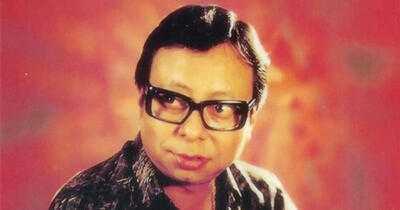 A Glimpse into the Life of Pancham
A Glimpse into the Life of Pancham
Rahul Dev Burman, affectionately referred to as Pancham, was a remarkable music composer whose illustrious career spanned 28 years, starting with the film Teesri Manzil in 1966 and concluding with 1942: A Love Story in 1994. As the son of the legendary composer S D Burman, he honed his skills in classical music under the guidance of esteemed maestros like Ustad Ali Akbar Khan and Samta Prasad. Although his initial projects, such as Chhote Nawab and Bhoot Bungla, garnered limited recognition, it was Teesri Manzil that propelled him into the limelight with memorable tracks like O haseena and Aaja aaja.
Burman created unforgettable melodies for iconic films including Padosan, Kati Patang, Sholay, Amar Prem, and Hare Rama Hare Krishna, frequently teaming up with renowned singers Kishore Kumar and Asha Bhosle, who later became his wife. Bhosle acknowledged that Burman revolutionized her singing style by introducing elements of jazz, innovative rhythms, and creative experimentation.
His collaboration with lyricist Gulzar resulted in some of the most cherished songs in films like Ijaazat, Masoom, and Aandhi. Often dubbed a 'music scientist,' Burman was known for his ability to incorporate everyday sounds into his compositions, seamlessly merging Indian classical music with international influences.
Lyricist Javed Akhtar praised Burman's knack for creating instant classics, citing songs like Ek ladki ko dekha and Chehra hai ya chand. Despite experiencing a decline in popularity during the 1980s, Burman's posthumous recognition with 1942: A Love Story solidified his enduring legacy. He passed away in 1994 at the age of 54, leaving behind a treasure trove of music that continues to be celebrated and cherished.